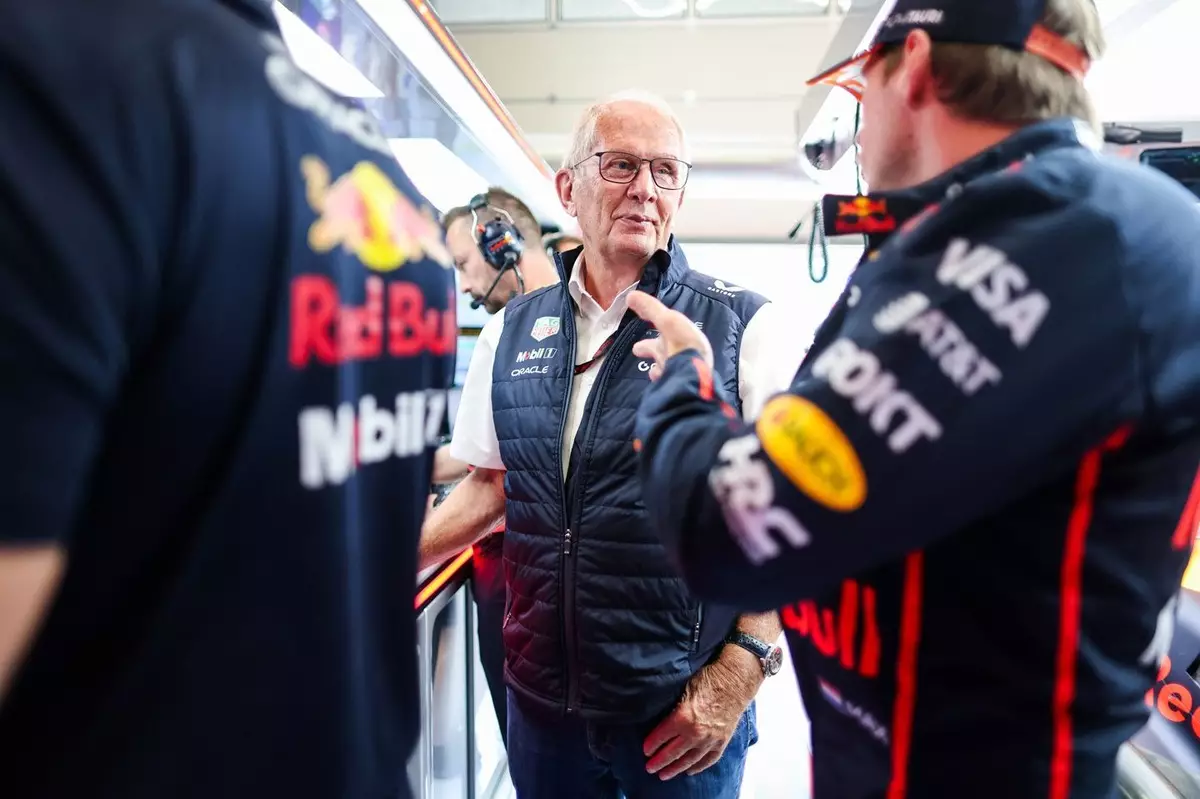In the high-octane world of Formula 1, few stories are as compelling as the recent struggles faced by Max Verstappen. After a tumultuous Austrian Grand Prix where he was forced out early, Verstappen’s position in the championship standings has taken a significant hit, dropping more than 60 points behind Oscar Piastri. This downturn isn’t just a blip; it casts a long shadow over Verstappen’s dominant streak and raises pertinent questions about his future with Red Bull. The Dutch driver’s exclusion from the race, culmination of a series of disappointing results, has fueled speculation about whether his partnership with the team remains as secure as it once appeared.
Yet, beneath this visibly turbulent surface lies a narrative of resilience and strategic ambiguity. Red Bull’s team advisor, Helmut Marko, quickly stepped forward with reassuring words, emphasizing that contractual clauses—often regarded as potential exit routes—are standard for top-tier drivers and should not be viewed as a sign of imminent departure. However, these remarks seem to serve more as a defensive shield rather than an unequivocal guarantee, especially given Verstappen’s own cryptic responses and the persistent rumors swirling within the paddock.
The Implications of a Losing Streak
The recent dry spell, marked by Verstappen’s five-race winless streak, threatens to undermine the driver’s confidence and his perceived invincibility. A team that once seemed unstoppable now faces questions about performance stability and internal dynamics. Austria, ostensibly a home race for Red Bull, accentuated these vulnerabilities—racing misfortunes compounded by Verstappen’s early exit and teammate Yuki Tsunoda’s less-than-stellar performance, which saw him finishing last after a penalty.
This downward trend isn’t just about penalties or isolated races; it signals something more profound—the potential shift in the power balance, the unspoken fissures that might develop if results don’t improve. Despite the adversity, Verstappen appears to be at a crossroads, and his reactions—or lack thereof—are telling. Refusing to commit to next year’s plans explicitly, he has adopted a tone of indifference that could be interpreted either as confidence or as detachment.
Contractual Quietness and Future Uncertainty
One of the most striking elements in this narrative is Verstappen’s silence on his plans. When pressed about his future, his responses were deliberately vague, hinting at nothing concrete. This intentional ambiguity fuels speculation but also underscores a pragmatic approach: in Formula 1, silence often speaks louder than words, giving a driver the flexibility to navigate turbulent waters without binding declarations.
Helmut Marko’s assertion that the current contracts include performance-based exit clauses offers some reassurance—a common practice among top drivers and teams. However, the reliance on contractual stipulations isn’t necessarily a sign of unwavering loyalty. Instead, it reflects the reality of F1’s high-stakes environment where results and relationships can quickly shift. The truth is that, in this sport, even the most ironclad agreements are subject to the unpredictable whims of performance, team dynamics, and personal aspirations.
The Broader Narrative of Resilience and Agency
Verstappen’s recent silence and the team’s cautious optimism highlight a broader truth about his persona: a driver who, despite setbacks, remains strategically guarded and emotionally resilient. His terse comment about not wanting to discuss next season and the cryptic nature of his responses demonstrate a mastery of maintaining control over his narrative. It is easy to underestimate how much psychological strength is required to weather a string of poor results in one of the world’s most scrutinized sports.
Moreover, Verstappen’s apparent detachment from the immediate chaos hints at a deeper understanding—this is just another phase in a racing career characterized by relentless pursuit of excellence. His focus on “just driving well” shows that, ultimately, he trusts in his abilities and his team’s capacity for redemption. The uncertainty surrounding his future doesn’t appear to shake his core belief: that performance and perseverance will ultimately determine his path.
The Power of Confidence Amidst Uncertainty
While some may interpret Verstappen’s silence as vulnerability or wavering loyalty, others recognize it as strategic confidence. It’s a silent acknowledgment that he remains in control—regardless of the external noise. His future isn’t dictated solely by race results; it’s also shaped by his personal aspirations, his relationship with Red Bull, and his willingness to endure temporary setbacks.
Ultimately, Verstappen’s journey highlights a key insight about high-performance individuals: resilience isn’t about never falling but about how effectively one navigates the fall. His calm, enigmatic stance in the face of adversity speaks volumes about his understanding of his own worth and potential. In an environment where every race could redefine careers, Verstappen’s quiet confidence may be his most potent weapon yet.

